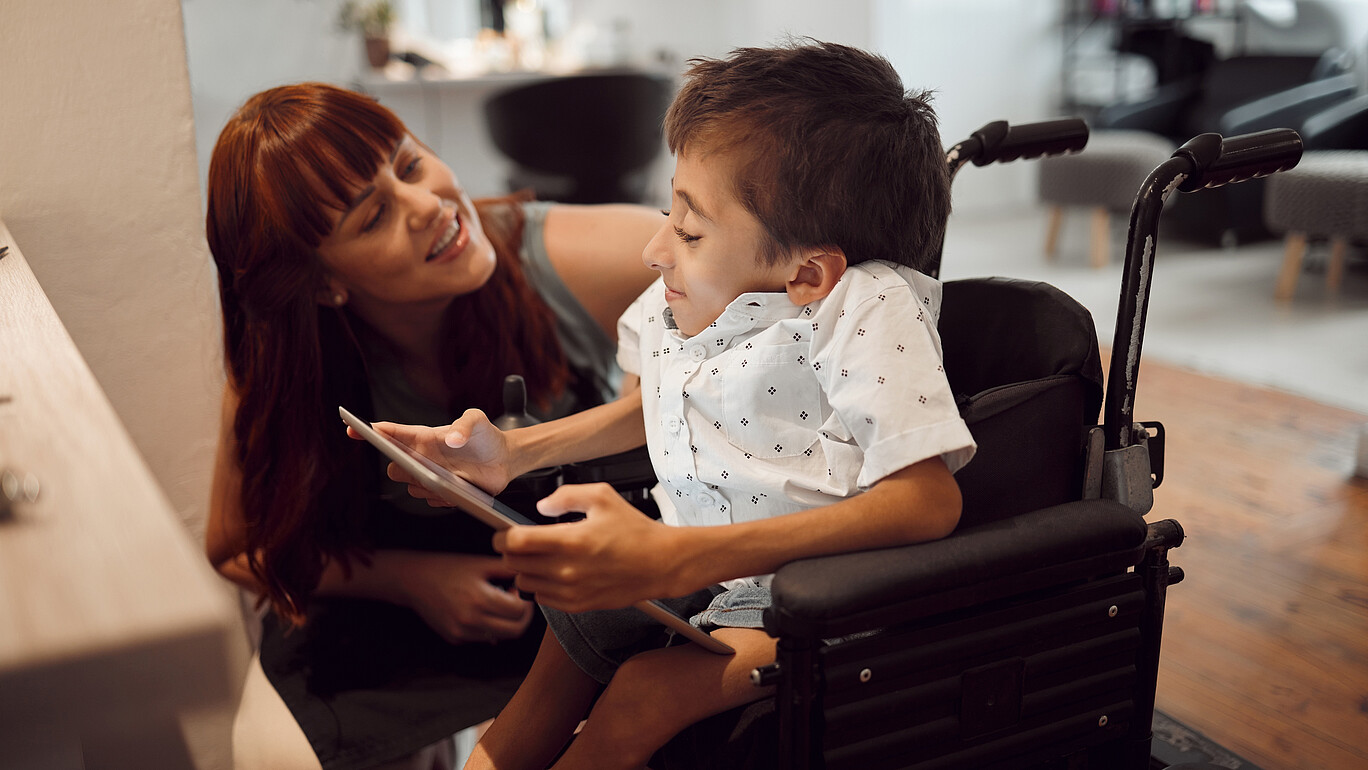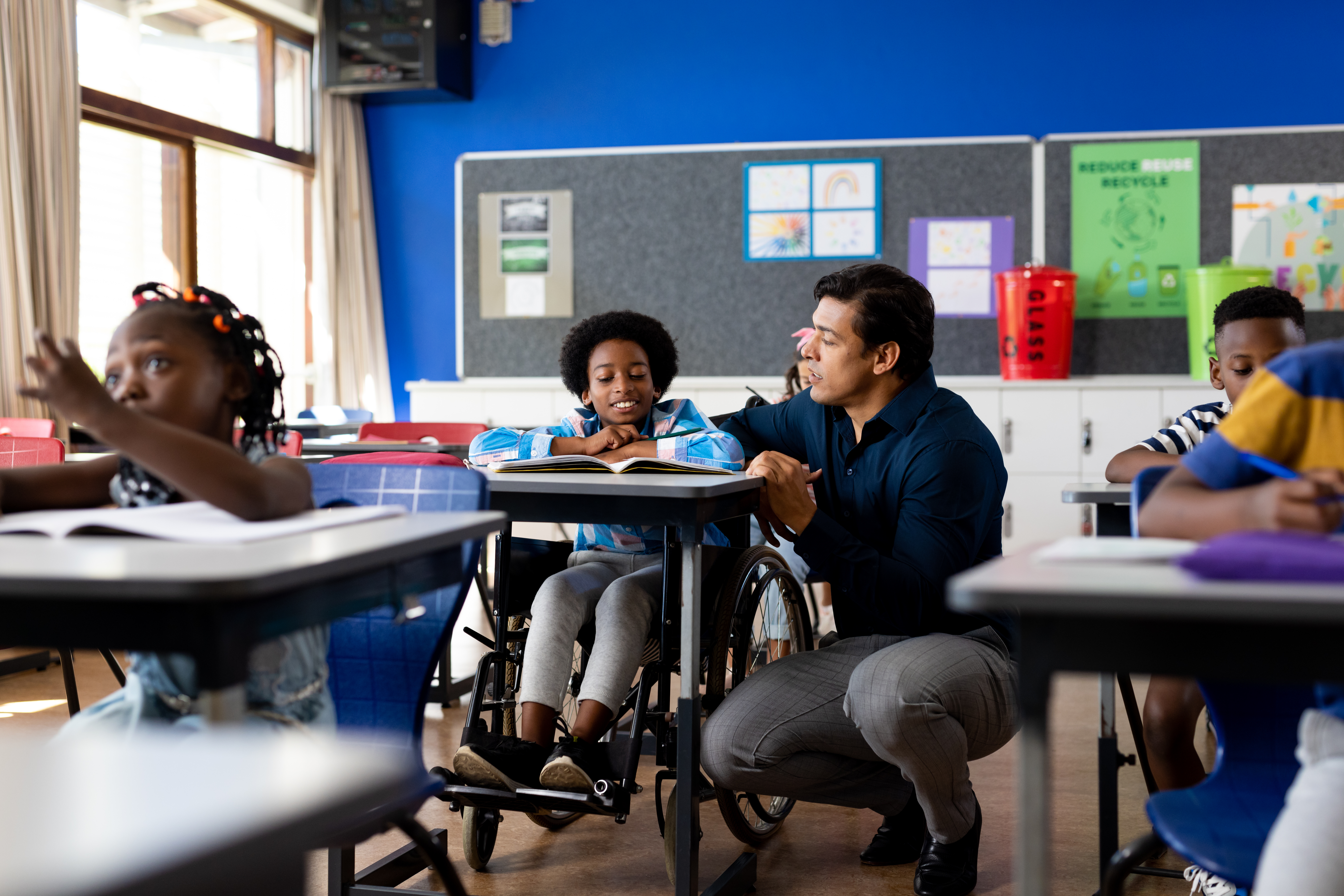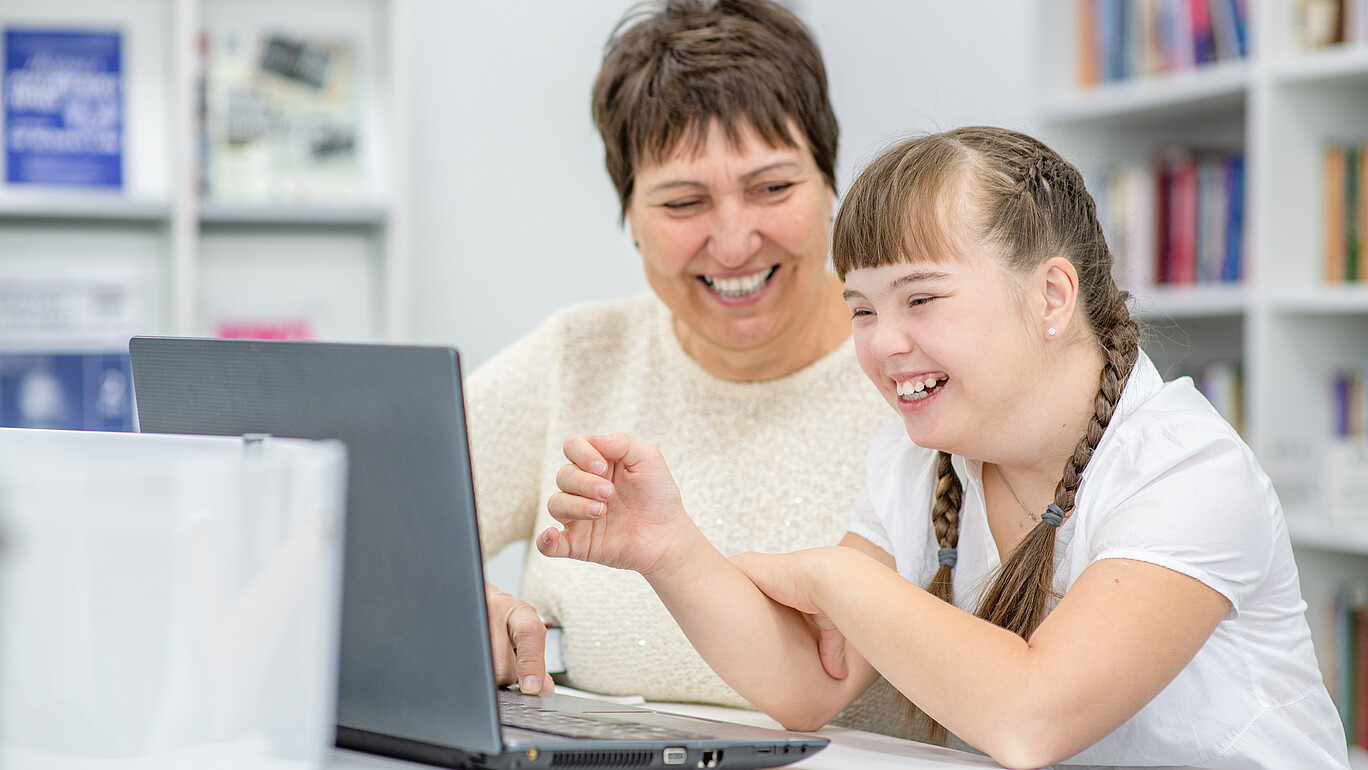Would you like to improve the opportunities for participation of people whose social inclusion is hampered by barriers and exclusionary experiences? In the Bachelor's degree program in inclusion studies, you will learn how to professionally accompany and support people of all ages. The unique combination of traditional curative education and modern inclusion thinking qualifies you for a wide range of fields of activity.
Professional skills for equal participation
In this practice-oriented degree program, you will acquire comprehensive skills in the following areas
Particularly valuable: the close link between theory and practice through two intensive practical phases. In the third semester, you will complete an internship in the field of diagnostics, followed by the extensive practical module on intervention-oriented inclusive action in the fifth semester. Through this practical experience, you will learn to apply scientific findings directly in your everyday professional life and to reflect on them critically.
| Faculty: | Social Sciences |
| Location: | Görlitz |
| Degree: | Bachelor of Arts |
| Standard period of study: | 7 semesters |
| ECTS points: | 210 |
| Teaching language: | German |
| Enrolment for: | Winter semester |
| Application: 1.5 to 30.09 | Start of studies: October |
| Admission restriction: | admission-free (without NC) Details |
| No pre-study internship | to the student advisory service |
| Accreditation status: | accredited |
| Seal of approval: | State-recognized degree program |
Your seven-semester course will lead you step by step to comprehensive curative education and inclusion-oriented skills. You will start with the basics of curative education and inclusive education as well as basic knowledge of human sciences, which will provide you with a solid foundation for your further education.
In the middle semesters, you will deepen your knowledge of diagnostics and planning as well as interventions, taking ecosystemic conditions into account. At the same time, you will acquire knowledge of research methods and carry out your first projects. The two intensive practical phases allow you to apply theoretical knowledge and develop reflective skills.
In the final semesters, you will deal with assistance, support and encouragement as well as the pedagogical roots of inclusion. You will complete your degree with applied research and your Bachelor's thesis, in which you will research a relevant topic. Upon successful completion of your degree, you will receive state recognition as a curative educator.
Accompanied practical module: Inclusive action

Early support
You will accompany children with developmental delays or disabilities in their first years of life. With a diagnostic eye, you will identify individual needs and develop playful support programs. Working closely with parents and other professionals, you will create optimal developmental conditions for a good start in life.

Inclusion assistance
You support people with disabilities in educational institutions and companies in their equal participation. You build bridges between individual needs and institutional requirements. Through your support, you enable participation and self-determined action in all areas of life.

Advice
You advise people with disabilities, their relatives and professionals in complex life situations. You provide information about support services, legal issues and funding options. With your systemic view, you develop suitable solution strategies for individual challenges together with those seeking advice.

Participation planning
You work in administrative offices and are responsible for the overall planning of participation services. You coordinate the need for assistance, draw up expert reports and network various support systems. With your in-depth specialist knowledge, you will ensure that support arrangements are efficient and tailored to needs.

Residential support
You design living concepts that promote self-determination and social inclusion. You provide support in coping with everyday life and develop individual future prospects together with the residents. Through your participatory approach, you create living spaces in which people with different needs can develop.

Networking
You develop inclusive structures in municipalities and institutions. You will network various stakeholders, initiate projects and help shape barrier-free living environments. With your overview of various fields of action, you contribute to the sustainable anchoring of inclusion in society.
You will find even more opportunities with us in other related degree programs.
Not sure yet? If you have any questions, please contact our student advisory service. We are at your side when it comes to choosing a course.
We now also offer our student advisory service via WhatsApp. Just send us a message to: +49 173 2086748
Studying with us is different. Above all, better. Why? We have a family atmosphere. There are small study groups and the lecturers are always there for you. There is a close connection to practice in all degree courses. And finding affordable accommodation is no problem here.
There are many other reasons, such as university sports or the student representatives, clubs and societies. Campus life in Zittau and Görlitz - the wild east - is unique.